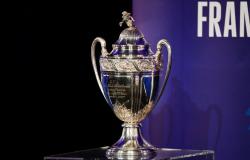Making a film on the life of the writer Édouard Limonov (1943-2020) was a challenge, as it was rich in reversals of all kinds: various emigrations, downgrading then gentrification, professional instability, multiple literary reconversions, political commitment to relative success…
Cinematographer Kirill Serebrennikov (Tchaikovsky's Wife), by deciding to bring Emmanuel Carrère's biographical novel to the screen, Limonovclearly did not choose the easy way, and the result obviously does not live up to our expectations. Filmed entirely in English with Anglo-Saxon actors, the film was already off to a very bad start…
The bohemian life of a Russian poet in New York
Franco-Italian-Spanish production, Limonov, la ballade returns to the youth of the man who is still only Édouard Veniaminovitch Savenko (Ben Whishaw), anarcho-libertarian poet from Kharkov, once involved in petty delinquency. Very quickly, the young author understood the need to leave the USSR to discover the Western capitalist world, stand out as an intellectual, and perfect his style. It was then in the underbelly of New York in the 1970s that “Limonov” (contraction, in Russian, of limon, lemon, and limonka, pomegranate) decided to settle down. A passionate artist, absolutist, and in search of all power, our nihilistic and revolutionary poet survives thanks to social assistance while multiplying the escapades, sometimes with his partner of the time, to whom he shows all the colors, sometimes with a homeless man found one evening in an alley in the city (!). Limonov, through his writings, will gradually become known in the West, in the United States then in France, gain fame, and become involved in Russian and international political life…
Patriotic and illiberal
Often a contradictory, even incoherent character between his libertarian, depraved and provocative lifestyle and his anti-capitalist and nationalist ideological positions, Édouard Limonov appears above all as a sort of dandy/punk nostalgic for Russian greatness. Deeply patriotic, the fanatic exclaims both the communists of the past, responsible for the impoverishment of his people, and the liberals, subservient to the West, who are in the process of taking power in Russia since the fall of the Berlin Wall. . It is therefore quite natural that the red-brown synthesis imposes itself on him, both right-and-left AND neither-right-nor-left, via his creation in 1992 of the National-Bolshevik Party whose emblem, resolutely provocative, is inspired by the communist flag as well as the Nazi flag (!).
A sulphurous but insufficient portrait
Alas, this part of Limonov's life – the most important – is only barely skimmed over, Kirill Serebrennikov obviously preferring to dwell with fascination and complacency on the New York eccentricities of the megalomaniac and penniless poet, which he films in a rhythmic, pop and trendy mode. It seems that the libertarian Limonov of the 70s interests the filmmaker more than the political Limonov of the 80s to 2000. So much so that the film says practically nothing about the genesis of the National Bolshevik Party, founded with his ephemeral traveling companion , Alexander Dugin. The latter, famous champion of Eurasianist thought, is never mentioned in the story, nor even the complex relationship between Limonov and Vladimir Putin. The director does not address the author's geopolitical positions: pro-Serbs during the war in Bosnia and pro-Chechens against the Russians. No details either on the reasons for his incarceration in 2001 (attempted coup d'état in Kazakhstan with his “natsbol” supporters, and arms trafficking)…
Furthermore, the French viewer would have appreciated an allusion to Limonov's support for the Yellow Vests (” They have a “left-right” mix that I like “) and its ongoing relationship with the French New Right supported by the magazine Elements by Alain de Benoist and François Bousquet.
Without doubt, Kirill Serebrennikov did not have the intellectual knowledge nor the maturity necessary to venture into the territory of the political and ideologue Limonov.
2 stars out of 5
Print, save as PDF this article

![[CINÉMA] Limonov, dulcified portrait of a red-brown](https://euro.dayfr.com/temp/resized/medium_2024-12-22-f554670e6f.jpg)




